Profile For DonInOz
DonInOz's Info
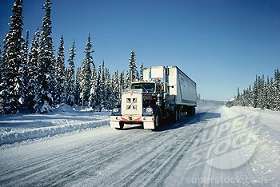
-
Location:
-
Driving Status:
Considering A Career -
Social Link:
-
Joined Us:
10 years, 1 month ago
DonInOz's Bio
Retired USAF currently living in Australia thinking about giving truck driving a try when I come back to the USA.
Comments By DonInOz
Posted: 9 years, 9 months ago
View Topic:
What is the "manf?" I thought it was a typo at first but then you used it repeatedly.
I took it to mean, "manufacturer."
Posted: 9 years, 9 months ago
View Topic:
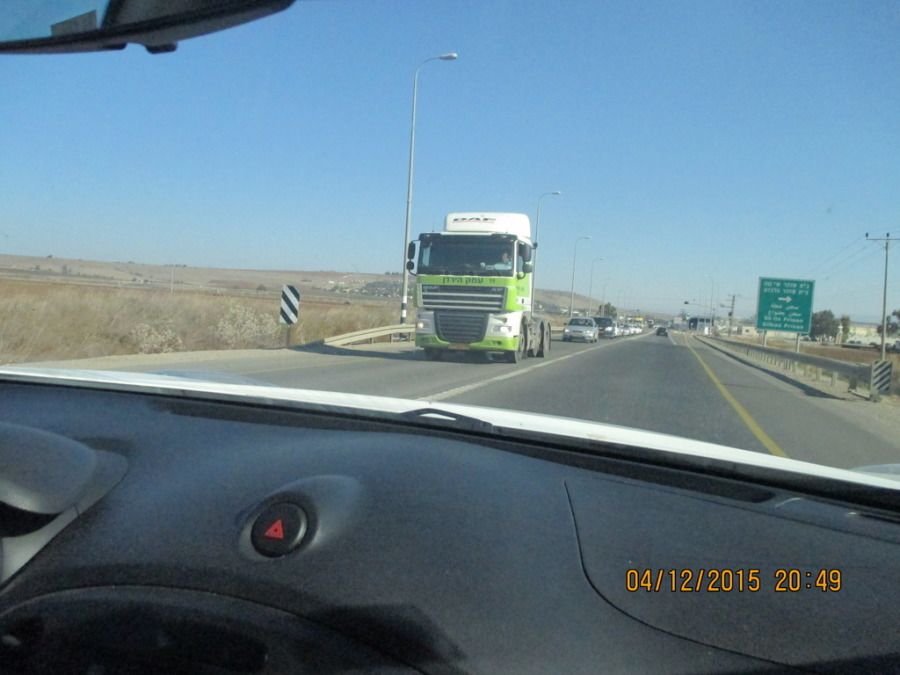
That said, Israel’s highways are still considered dangerous: not only because of traffic but also because of the constant threat of terror attack on vehicles and their drivers. Truckers who venture out into little-populated areas such as the Negev, or the Administered Territories of Judea and Samaria stay constantly in contact and often travel armed. I hope this has proven interesting as a case study in the contrasts – and similarities – between trucking in our huge land, and in a very different kind of place!
Don
Posted: 9 years, 9 months ago
View Topic:
Accident rates are falling in recent years, in part because of increased enforcement of speed limits and red lights, but also because of better-engineered highways. New roads that are the equivalent of US Interstates and European Motorways are replacing old roads all the time. Highway 6, the ‘Trans-Israel Highway’ which runs from Beersheva in the south to near Haifa in the north – and for using which there is a toll – is an example of modern highway building that allows through traffic to skirt major population centers and makes distance travel much easier and safer.
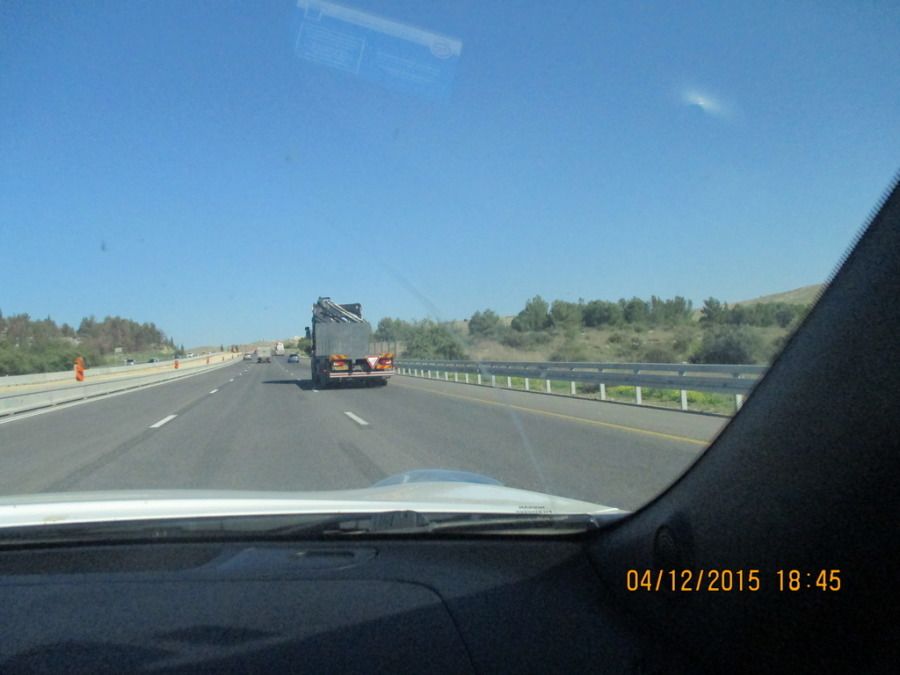
Posted: 9 years, 9 months ago
View Topic:
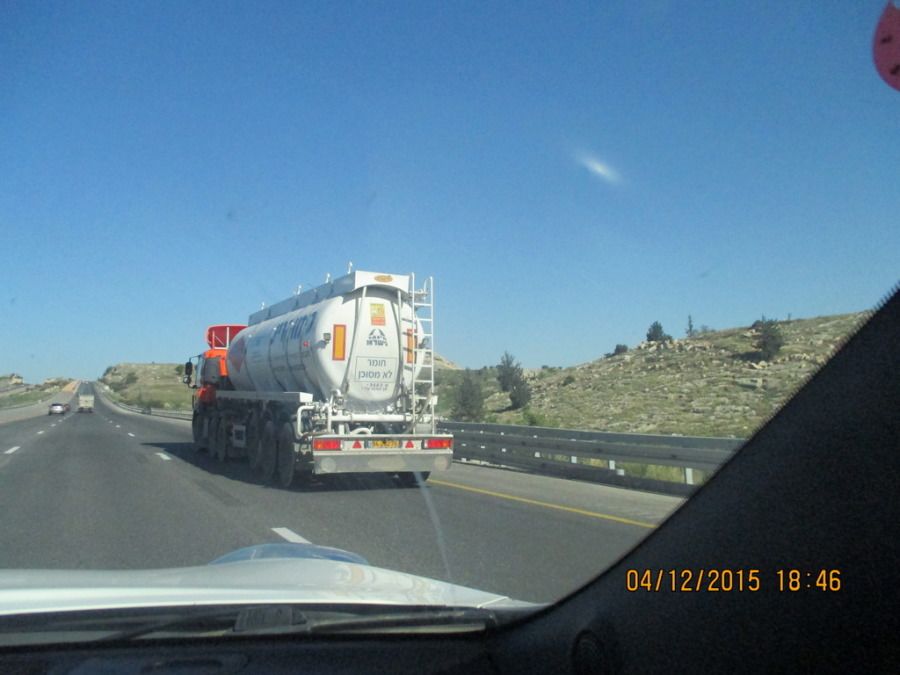
Compared with North America, a remarkable percentage of Israeli truckers are independents or work for small family-owned fleets such as that once owned by my father in law. The notable exceptions are fuel tankers, and delivery trucks owned by producers or importers of small consumer foods, which deliver their product all over the country in smaller trucks that would be used solely in local service on our continent.
Posted: 9 years, 9 months ago
View Topic:
As in North America, there are different classes of CDL which allow the holder to drive trucks of different configurations. There are fewer everyday regulations that drivers must follow; logbooks, scaling and the like are not in evidence. On the other hand, truckers are given tighter scrutiny than ‘4-wheelers’ and as professionals are held to a higher standard and are more quickly blamed when a deadly accident occurs. And make no mistake about it, there are plenty of deadly accidents on Israeli roads.
Posted: 9 years, 9 months ago
View Topic:
Israeli trucks are almost exclusively of the cab-over-engine configuration: probably because European trucks (eg, MB, Volvo, Scania, MAN, Renault) predominate and COE’s are the standard in Europe.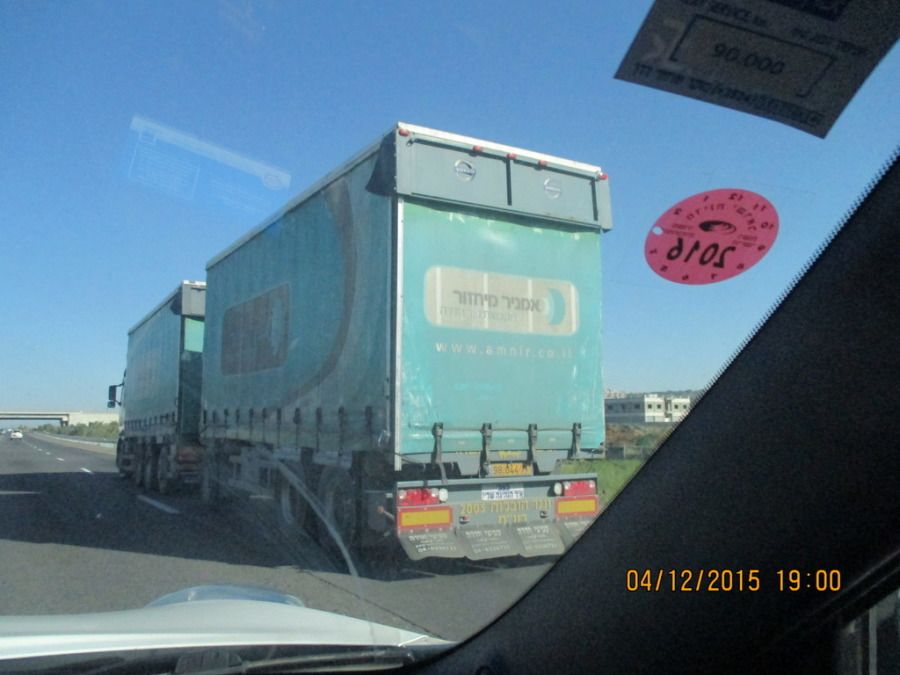
Posted: 9 years, 9 months ago
View Topic:
As these pictures show, Israeli trucks are configured differently than most on North American highways. The ’18-wheeler’ of a tractor with dual drive axles and two axles on the trailer, is not standard. More common configuration for heavy trucks, is a non-articulated truck with four axles – two steering in front and two driving in back although often one of the latter can be retracted for when running empty – and often pulling a trailer with one front axle and two rear. When one sees tractor-trailer rigs, they most often have three axles on the trailer. Many large trucks are flatbeds, because a larger percentage of trucking is intermodal given the smaller size of the country; I’ve seen many tractor-trailer rigs pulling two 20’ containers on the trailer, and where it is a straight truck pulling a trailer, up to three 20’ containers all told.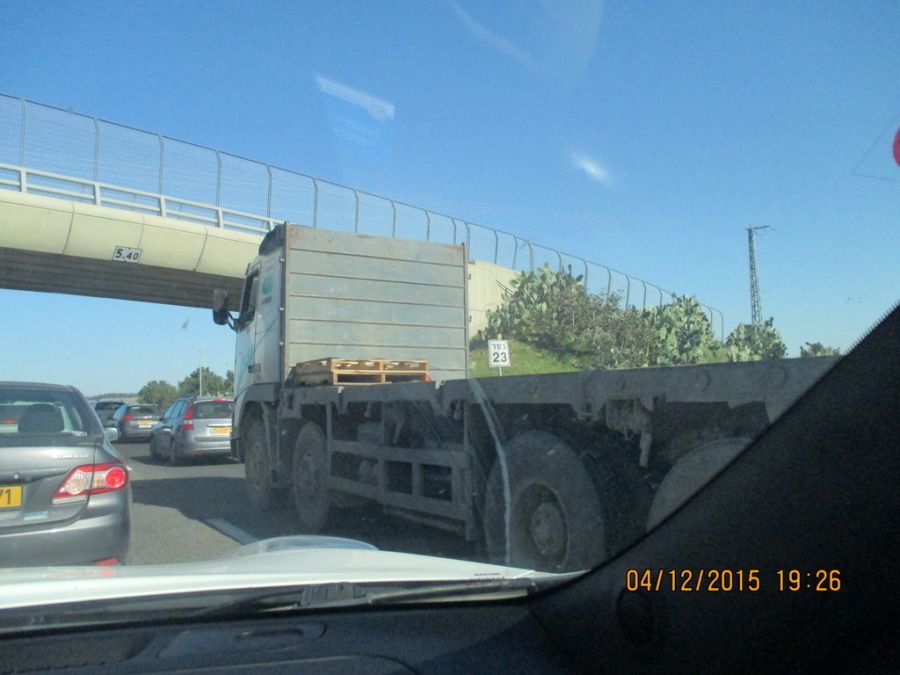
Posted: 9 years, 9 months ago
View Topic:
Even a cursory knowledge of the geography tells one that ‘over-the-road’ as we understand it in North America and other places, does not apply to Israel. The country has a landmass ro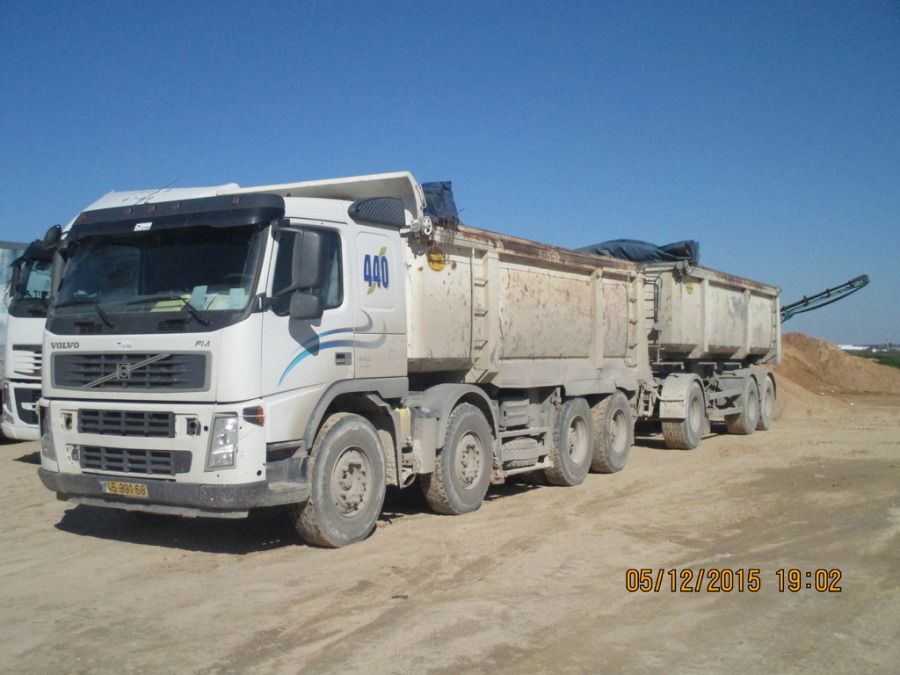
ughly equal, in square miles, to that of New Jersey. It seems much larger, because Israel is long (290 miles from north to south) and relatively narrow (about 85 miles at its widest point). Given that the country’s population density at 377/km2 is high, it is surprising that one can easily find places with the feel of wide-open space and the open road. The reason is that much of the country’s population resides in the coastal plain anchored at the north by Haifa and its suburbs, by Ashkelon at its south, and with Tel Aviv and its vast metropolitan area at its center. So OTR trucking, in the sense of days and weeks away from home, is not part of the reality for Israeli truckers…and one therefore does not see many sleeper cab-equipped trucks. What truckers do consider part of their lot – as in other parts of the world – are long work days as they drive the country from end to end on ever-more-congested highways.
Posted: 9 years, 9 months ago
View Topic:
I’ve just been visiting in Israel for a month. My wife is Israeli. Her late father owned a small fleet of trucks that her five brothers operated. Some 20 years ago, the brothers started to drift off into different directions, but two of them still own and drive trucks. I’ve therefore long been fascinated by the trucking scene in Israel and in the differences between Israel and other countries, in particular the USA which is my home (although right now I’m living and working in Australia). I therefore thought my fellow Trucking Truthers might be interested in a report from the Holy Land…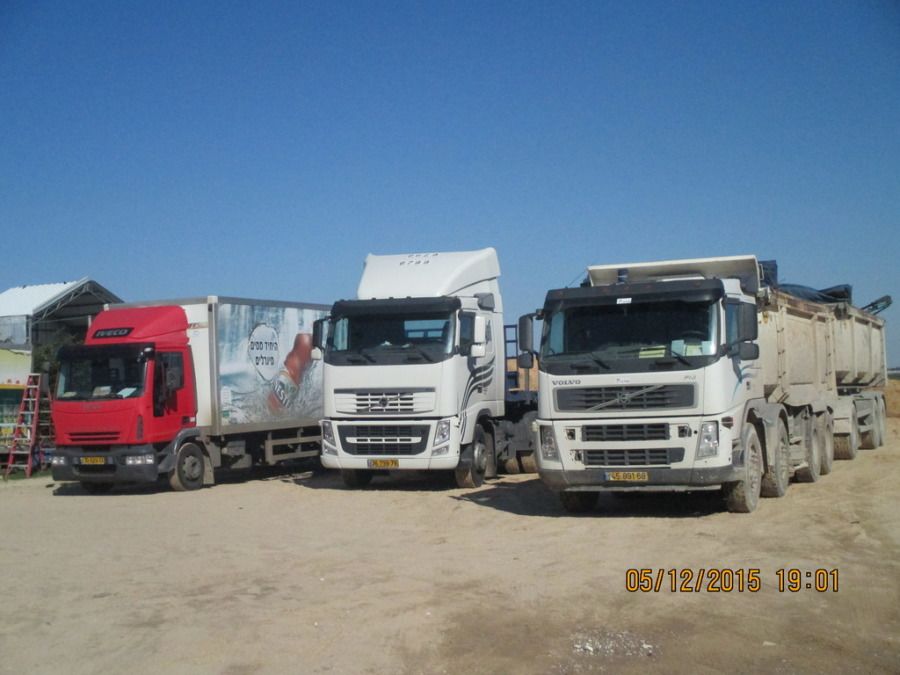






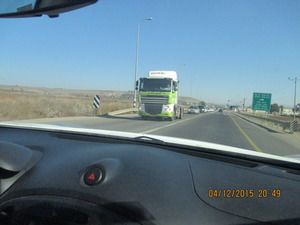

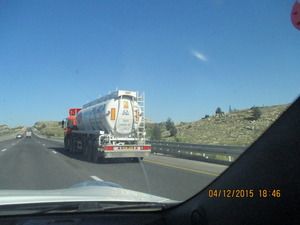
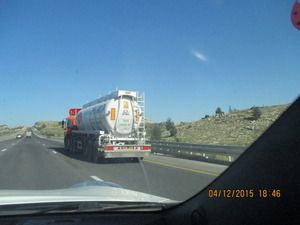
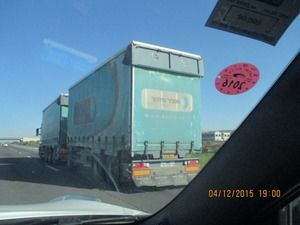
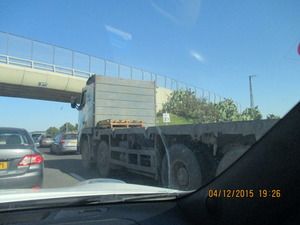
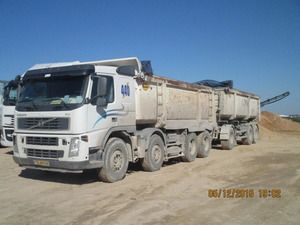
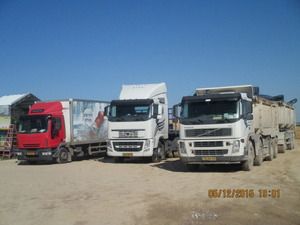

 TT On Facebook
TT On Facebook
Posted: 9 years, 9 months ago
View Topic:
A Letter from Israel
Sure, I coculd go on assignment for trucking Truth! :-)